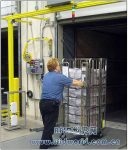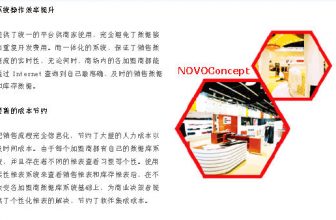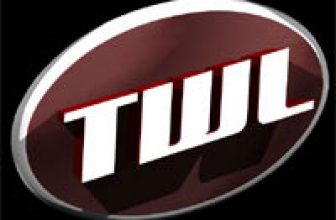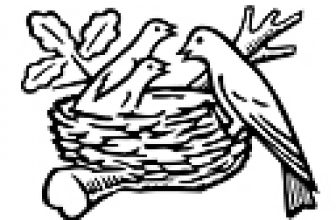
Dallas Morning News uses RFID system to improve the accuracy of newspaper advertisements
[ad_1]
In order to enhance the influence and pertinence of client advertising, the Dallas Morning News established a factory to organize advertising leaflets and newspaper inserts according to target readers in different regions. In the new factory, the company sends out 600,000 newspaper clip packs at the same time as the Sunday newspaper every week, and packs advertisements into 300 different categories according to the reader’s location. For example, an advertisement for a suburban store will only be distributed to newspapers in the area, not the entire city of Dallas.
The Dallas Morning News now uses an RFID tracking system to ensure that these advertising packages-transported by metal trolleys to 12 distribution centers-are loaded on the correct truck and sent to the correct area. The RF SmartCart tracking system provided by Cannon Equipment was officially launched this month.
Early in the week, the Dallas Morning News began to organize flyers and inserts into specific packages. When the advertisements sent to a specific area are packaged, the packages are bundled into bundles and sent to a newspaper distribution center of the publisher. In the distribution center, before the newspaper postman picks up the newspaper, the staff again sorts the advertising packets and clip them into the Sunday newspaper.

The application of such a complex system faces two major challenges. Cannon Equipment’s head of printing technology, Cannon Equipment, said: One is to ensure that the correct advertising package is delivered to the correct distribution point in a specific area, and the other is to track 4000 vehicles traveling between the distribution center and the factory. trolley.
“The industry supply chain we are in is more complicated,” said Bill May, vice president of operations at Dallas Morning News. “We hope to improve and ensure the integrity of advertising delivery by ensuring that the correct advertising packages are loaded onto the correct trucks and sent to the correct distribution centers.”
The Dallas Morning News used Cannon Equipment’s equipment to automatically complete the loading of the trolley. The company has now added Alien Technology tags and readers to this system to use them to track the trolley.
When the package is bundled into a bundle and a bar code label is affixed, the staff scans the label and associates the bar code with the destination to which the package is sent. At this time, the metal trolley was also pushed into the work site, waiting for special loading. Each trolley is affixed with a passive EPC Gen 2 RFID tag, and the ID code of the tag corresponds to the serial code of the trolley.
An Alien 9800 reader captures the ID number of the trolley tag, and a Cannon NCL Series II trolley loader installs 40 advertising wraps on each trolley. The RFID reader sends data to a PC workstation running on a WEB server through an Ethernet connection. When the trolley is loaded with advertising wraps, the system updates and displays the distribution center of the trucks that received this batch of advertisements.
When the trolley is pushed into the truck, it passes through one of the eight entrances and exits. These 8 entrances and exits represent different distribution centers. Alien 9800 door readers are installed at each entrance and exit. If the trolley passes the incorrect portal reader, the system will issue an alarm to notify the staff that the cart route is wrong. The reader is also connected to the PC workstation via Ethernet to update the system’s Cannon cart operation and management enterprise tracking software, indicating that the cart has been taken away.
Alien readers are also installed at the entrances and exits of 12 distribution centers. When the ID number of the trolley tag is captured, the reader informs the system that the batch has been received. When the empty trolley is transported back to the factory, the trolley tag is read again, so that the system knows the location of the empty trolley.
After adopting the RFID system, Geraghty said, the company has learned about the loaded goods of each cart and its corresponding delivery truck and receiving distribution center, and how many empty carts there are on the truck. Newspaper companies can share these data with their advertisers to ensure the accuracy and timeliness of their advertising coverage.
So far, the application of the entire system has been very smooth. “The installation and launch of the system are seamlessly integrated into the original process.” However, the metal carts affected the accuracy of reading. Geraghty explained, “We combine Antenna positioning, attenuation adjustment and software are used to solve this problem.”
[ad_2]






